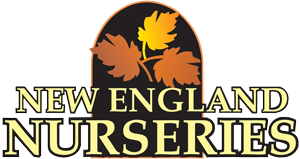Garden Maintenance in Bedford, MA

Greenhouse and Nursery in Bedford
When it comes to gardening, it can be difficult to know where to start. With so many varieties of plants, and each having its own set of care instructions, it can be overwhelming for beginners. However, there are a few low maintenance gardening tips that every gardener should know in order to get started. Read on to discover the top gardening tips for beginners who want to maintain a simple garden from New England Nurseries in Bedford, MA.
Choose the Right Place
One of the most important things to consider when starting a garden is choosing the right location. You’ll want to pick a spot that gets enough sunlight for the plants you want to grow. If you’re not sure how much sun your chosen location gets, you can use a sun calculator to help you determine whether it’s suitable for your plants. Additionally, make sure the location you choose is close to a water source so that you can easily water your garden.
Sunlight
Sunlight is key for a healthy garden. Most plants need at least six hours of direct sunlight per day in order to prosper, but this can vary depending on the specific plant. If you’re not sure how much sun your location gets, you can consult our gardening experts at New England Nurseries.
Watering
Another important factor to consider for your garden is watering. Depending on the type of plants you’re growing, they will have different watering needs. For example, succulents and cacti need very little water as they are adapted to dry conditions, whereas other plants like ferns require more frequent watering. Once you know the specific watering needs of your plants, you can create a watering schedule that works for you. It’s important to stick to this schedule as much as possible so your plants don’t become stressed or dehydrated.
Soil
The type of soil you use in your garden can also make a big difference in the health of your plants. Different plants have different soil requirements, so it’s important to do your research before you start planting. For example, some plants prefer sandy soil, while others need clay or loamy soil. Once you know the specific requirements of your plants, you can choose the right type of soil for them.
Use the Right Containers
If you’re growing plants in containers, it’s important to choose the right type of container for each plant. Depending on the size of the plant, you’ll need a different size and type of container. For example, large plants will need a deep pot so their roots have enough room to grow, whereas small plants can be grown in shallow pots. Additionally, make sure that the pot has drainage holes so that excess water can escape and the roots don’t become waterlogged.
Select the Right Plant
When you’re starting a garden, it’s important to choose the right plant for your space and level of experience. If you’re a beginner, you might want to start with plants that are easy to care for and don’t require a lot of attention. Once you’ve gained some experience, you can experiment with more difficult plants. Additionally, you’ll want to consider the climate you live in. Make sure to choose plants that are native to your area so that they can thrive in the local conditions.
Work On Your Lawn
If you have a lawn, it’s important to take care of it so that it looks its best. You’ll need to mow it regularly and fertilize it to keep it healthy. Additionally, you’ll want to make sure that you’re watering your lawn properly. If you water it too much, the grass will become yellow and soggy.
Remove Weeds
Weeds can quickly take over a garden if they’re not removed. You can pull them by hand or use a weed whacker to get rid of them. Additionally, you can use herbicides to kill weeds. However, make sure to read the labels carefully so you don’t damage your plants.
Add Mulch
Mulch is a great way to add nutrients to your soil and protect your plants. It can also help to prevent weeds from growing. There are many different types of mulch, so you’ll need to choose the right one for your plants. For example, pine needles make a good mulch for acid-loving plants like rhododendrons.
Learn Your Frost Dates
If you live in an area with a cold climate, you’ll need to be aware of the frost dates. These are the dates when the temperatures are expected to drop below freezing. Make sure to check your local frost dates so you can plan accordingly. For example, you might need to start planting your seeds indoors before the frost date so they have a chance to germinate.
Contact Our Bedford Nursery Today
Are you ready to grow the garden of your dreams? Contact New England Nurseries today. Our experienced professionals can help you choose the right plants for your space and provide you with all the information you need to get started. We’ll also deliver your plants right to your door so you can start enjoying them as soon as possible. Contact our Bedford nursery today to get started.
